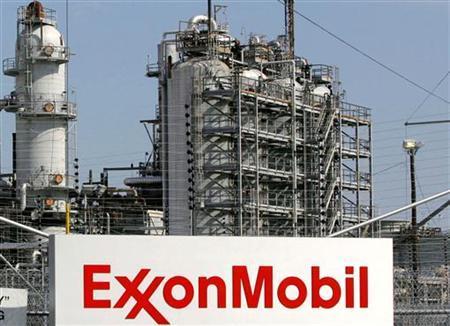
Exxon Mobil Corp., operator of a $19 billion liquefied natural gas project in Papua New Guinea, is talking to customers in Asia about selling initial cargoes on the spot market as demand traditionally rises over summer.
The next shipment will go to CPC Corp. of Taiwan, Decie Autin, Exxon’s project executive in Papua New Guinea, said today in a a phone interview. The first shipment has left the country headed to Tokyo Electric Power Co. in Japan, Exxon said earlier today in an e-mailed statement.
“There are a few other customers that we’re talking to, and Asia is clearly the focus area for us,” she said. “We’ll sell on the spot market until we’re comfortable we’ve got reliable, sustainable sales. We’re not seeing any issues with placing our cargoes.”
Spot LNG prices in northeast Asia fell to $13.50 a million British thermal units, their lowest since October 2012, in the week to May 19, according to World Gas Intelligence assessments of cargoes for delivery in four to eight weeks published May 21. They reached $19.70 in February.
Exxon and its partners, including Oil Search Ltd. and Santos Ltd., are considering expansion of the development to tap Asian demand. Exxon is focused on exploration to underpin an expansion rather than trying to obtain gas from InterOil Corp.’s Elk and Antelope gas discoveries on Papua New Guinea, Autin said.
Total SA and InterOil want to build a second export development in Papua New Guinea based on gas from the Elk and Antelope fields. Oil Search also agreed earlier this year to acquire part of those fields.
“It looks like they have a deal, it looks like they’re building a greenfield facility, and to my knowledge, that’s a go, and something that’s happening,” Autin said. “I don’t know of a lot of opportunity there.”
Oil Search earlier this year contested Total’s agreement to buy part of InterOil’s project, saying that the deal breached its pre-emptive rights. The possibility of Oil Search blocking Total sparked speculation that Exxon could enter the Elk and Antelope license.
The LNG market will remain tight until at least 2015, according to the International Energy Agency. Spot and short- term LNG trade increased to 27.4 percent of the total last year from 25 percent in 2012, according to the International Group of Liquefied Natural Gas Importers.
Importers typically purchase more spot shipments in June through September to meet increased power needs amid hotter weather during summer.
The Exxon development has long-term contracts with four major customers, Tokyo Electric Power, CPC, Osaka Gas Co. and China Petroleum & Chemical Corp. The first series of LNG cargoes will be sold at spot prices, with the project progressively moving into contract deliveries, Oil Search said earlier this month.